Inspiring and Caring for Children in Kenya
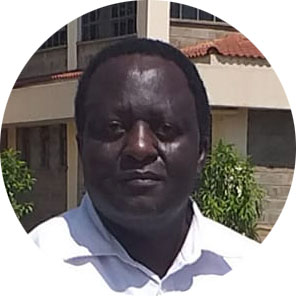 Born into a peasant polygamous family, Dr. Robert Wafula of Kenya is one of 22 children. His father worked on a farm and was a squatter with meager resources. Robert and his siblings quickly learned how to do odd jobs to help provide money for food, school fees, and other essentials. Around his teen years, he got to go live with his grandmother who was also a squatter and worked for someone else. The big difference between the two living environments is Robert’s grandmother knew Jesus.
Born into a peasant polygamous family, Dr. Robert Wafula of Kenya is one of 22 children. His father worked on a farm and was a squatter with meager resources. Robert and his siblings quickly learned how to do odd jobs to help provide money for food, school fees, and other essentials. Around his teen years, he got to go live with his grandmother who was also a squatter and worked for someone else. The big difference between the two living environments is Robert’s grandmother knew Jesus.
“She admonished me to love God and pray as if my entire life depended on it. All I am today and all I will be tomorrow is a result of my faith in God. This is the inner drive that makes me talk about hope to inspire others who may be experiencing defeat because of where they came from.”
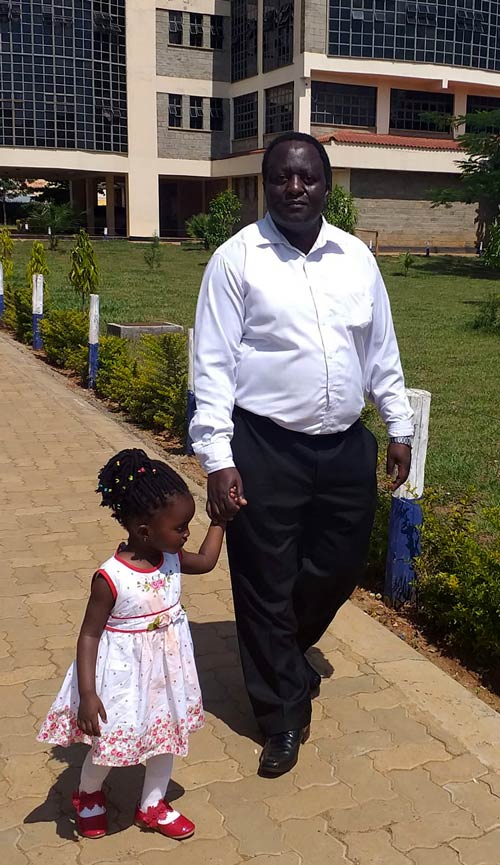
Dr. Wafula’s deprived background has given him strong intrinsic motivation to inspire students in spiritual, academic, and career mentorship. He explains that many children are forced to the street in his country due to conflicts within the family. And these fights often lead to the children being neglected. He sees that in other situations, the children are living on the street because their families are so poor that they cannot provide the basics.
“Sometimes the kids are homeless because they are orphaned, and they become the head of their own family.”
His ministry vision is successful because it is simple, yet profound. Social workers and counselors are sent out to where the street children play. They build rapport with the kids and share food, clothes, and other necessities with them. Once a friendship is established, the counselors invite the children who are willing, to move into the rescue center.
“We engage the children to help us find their homes and meet their parents, if at all possible. And in the meantime, we rehabilitate them from drugs, street manners, and street culture.”
Robert and his team counsel these kids and train them on self-care, etiquette, and responsibility.
“Annually, I lead tens of thousands of students in university, colleges, and high schools to Christ courtesy of my mentorship programs. We have experienced many being healed and their academic dreams restored.”
After the kids are enrolled in school, the ministry continues working with them on other vital skills for the next one to two years.
“We undertake a re-integration process by learning from the children why they moved out of their homes and seek suggestions on how to mitigate that from happening again. We meet with the parents separately to hear their side of the story. And then we have a joint session to corroborate facts and facilitate reconciliation and forgiveness. We support the families as they receive their children back into their homes and maintain follow-up to support the entire process.”
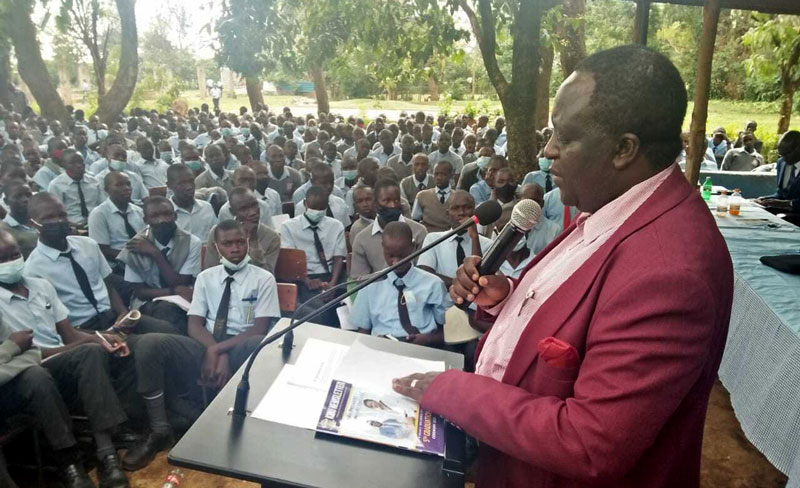
Robert and his wife, Idah, have a God-given vision for how to help reconnect children with their parents. While he attended the Haggai Leader Experience in 2019, something he learned that has stuck with him: “Dr. Haggai was the epitome of hope, exhortation, determination, and commitment to one’s goals until they are fulfilled. Moreover, the beauty of confidence and adopting visions that suit cultural needs can expedite the efficiency in which the vision is fulfilled.” They intend to continue to learn what the cultural needs are around them and see how they can adapt their God-given vision to complete the task God has called them to.
Inspiring and Caring for Children in Kenya
 Born into a peasant polygamous family, Dr. Robert Wafula of Kenya is one of 22 children. His father worked on a farm and was a squatter with meager resources. Robert and his siblings quickly learned how to do odd jobs to help provide money for food, school fees, and other essentials. Around his teen years, he got to go live with his grandmother who was also a squatter and worked for someone else. The big difference between the two living environments is Robert’s grandmother knew Jesus.
Born into a peasant polygamous family, Dr. Robert Wafula of Kenya is one of 22 children. His father worked on a farm and was a squatter with meager resources. Robert and his siblings quickly learned how to do odd jobs to help provide money for food, school fees, and other essentials. Around his teen years, he got to go live with his grandmother who was also a squatter and worked for someone else. The big difference between the two living environments is Robert’s grandmother knew Jesus.
“She admonished me to love God and pray as if my entire life depended on it. All I am today and all I will be tomorrow is a result of my faith in God. This is the inner drive that makes me talk about hope to inspire others who may be experiencing defeat because of where they came from.”

Dr. Wafula’s deprived background has given him strong intrinsic motivation to inspire students in spiritual, academic, and career mentorship. He explains that many children are forced to the street in his country due to conflicts within the family. And these fights often lead to the children being neglected. He sees that in other situations, the children are living on the street because their families are so poor that they cannot provide the basics.
“Sometimes the kids are homeless because they are orphaned, and they become the head of their own family.”
His ministry vision is successful because it is simple, yet profound. Social workers and counselors are sent out to where the street children play. They build rapport with the kids and share food, clothes, and other necessities with them. Once a friendship is established, the counselors invite the children who are willing, to move into the rescue center.
“We engage the children to help us find their homes and meet their parents, if at all possible. And in the meantime, we rehabilitate them from drugs, street manners, and street culture.”
Robert and his team counsel these kids and train them on self-care, etiquette, and responsibility.
“Annually, I lead tens of thousands of students in university, colleges, and high schools to Christ courtesy of my mentorship programs. We have experienced many being healed and their academic dreams restored.”
After the kids are enrolled in school, the ministry continues working with them on other vital skills for the next one to two years.
“We undertake a re-integration process by learning from the children why they moved out of their homes and seek suggestions on how to mitigate that from happening again. We meet with the parents separately to hear their side of the story. And then we have a joint session to corroborate facts and facilitate reconciliation and forgiveness. We support the families as they receive their children back into their homes and maintain follow-up to support the entire process.”

Robert and his wife, Idah, have a God-given vision for how to help reconnect children with their parents. While he attended the Haggai Leader Experience in 2019, something he learned that has stuck with him: “Dr. Haggai was the epitome of hope, exhortation, determination, and commitment to one’s goals until they are fulfilled. Moreover, the beauty of confidence and adopting visions that suit cultural needs can expedite the efficiency in which the vision is fulfilled.” They intend to continue to learn what the cultural needs are around them and see how they can adapt their God-given vision to complete the task God has called them to.
Inspiring and Caring for Children in Kenya
 Born into a peasant polygamous family, Dr. Robert Wafula of Kenya is one of 22 children. His father worked on a farm and was a squatter with meager resources. Robert and his siblings quickly learned how to do odd jobs to help provide money for food, school fees, and other essentials. Around his teen years, he got to go live with his grandmother who was also a squatter and worked for someone else. The big difference between the two living environments is Robert’s grandmother knew Jesus.
Born into a peasant polygamous family, Dr. Robert Wafula of Kenya is one of 22 children. His father worked on a farm and was a squatter with meager resources. Robert and his siblings quickly learned how to do odd jobs to help provide money for food, school fees, and other essentials. Around his teen years, he got to go live with his grandmother who was also a squatter and worked for someone else. The big difference between the two living environments is Robert’s grandmother knew Jesus.
“She admonished me to love God and pray as if my entire life depended on it. All I am today and all I will be tomorrow is a result of my faith in God. This is the inner drive that makes me talk about hope to inspire others who may be experiencing defeat because of where they came from.”

Dr. Wafula’s deprived background has given him strong intrinsic motivation to inspire students in spiritual, academic, and career mentorship. He explains that many children are forced to the street in his country due to conflicts within the family. And these fights often lead to the children being neglected. He sees that in other situations, the children are living on the street because their families are so poor that they cannot provide the basics.
“Sometimes the kids are homeless because they are orphaned, and they become the head of their own family.”
His ministry vision is successful because it is simple, yet profound. Social workers and counselors are sent out to where the street children play. They build rapport with the kids and share food, clothes, and other necessities with them. Once a friendship is established, the counselors invite the children who are willing, to move into the rescue center.
“We engage the children to help us find their homes and meet their parents, if at all possible. And in the meantime, we rehabilitate them from drugs, street manners, and street culture.”
Robert and his team counsel these kids and train them on self-care, etiquette, and responsibility.
“Annually, I lead tens of thousands of students in university, colleges, and high schools to Christ courtesy of my mentorship programs. We have experienced many being healed and their academic dreams restored.”
After the kids are enrolled in school, the ministry continues working with them on other vital skills for the next one to two years.
“We undertake a re-integration process by learning from the children why they moved out of their homes and seek suggestions on how to mitigate that from happening again. We meet with the parents separately to hear their side of the story. And then we have a joint session to corroborate facts and facilitate reconciliation and forgiveness. We support the families as they receive their children back into their homes and maintain follow-up to support the entire process.”

Robert and his wife, Idah, have a God-given vision for how to help reconnect children with their parents. While he attended the Haggai Leader Experience in 2019, something he learned that has stuck with him: “Dr. Haggai was the epitome of hope, exhortation, determination, and commitment to one’s goals until they are fulfilled. Moreover, the beauty of confidence and adopting visions that suit cultural needs can expedite the efficiency in which the vision is fulfilled.” They intend to continue to learn what the cultural needs are around them and see how they can adapt their God-given vision to complete the task God has called them to.
Comments
Comments
-
wow. may God expand your teritories.


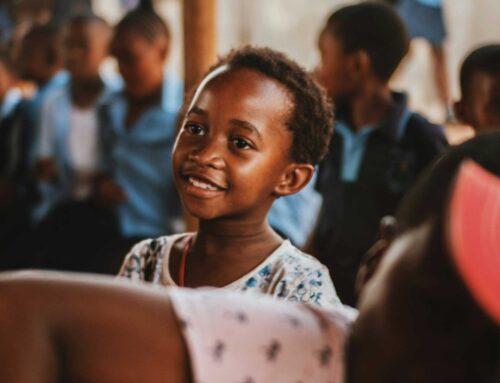
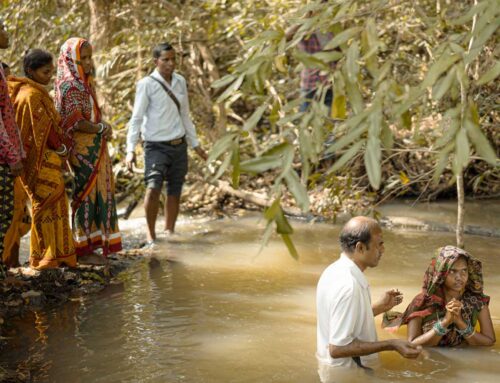
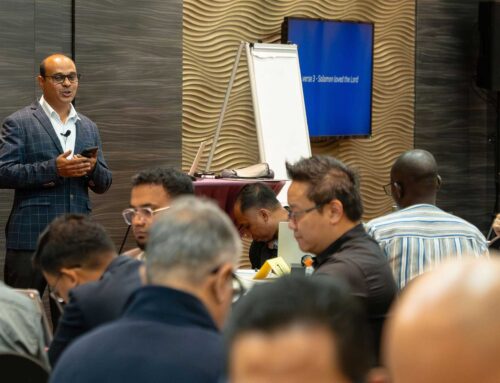

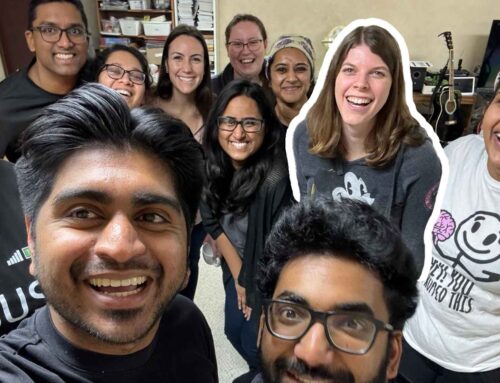

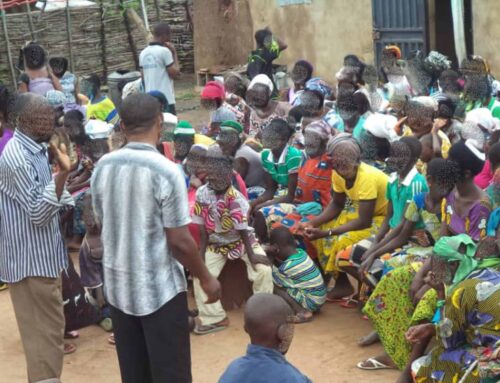







wow. may God expand your teritories.